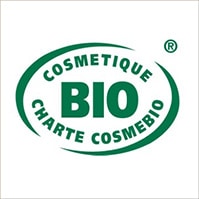The Importance of Ethical Beauty
- Purevive
- Jan 5, 2022
- 4 min read
Sustainable beauty; it's a concept we are exposed to more and more, yet the meaning and the problems it aims to address get lost in confusing jargon, made exclusive to those within the industry or, more simply, it just lacks a concise definition which is understandable considering it encompasses so much. Sustainable beauty, otherwise referred to as ethical beauty, is a phenomenon that is on the rise. It covers a range of factors that would deem a routine, product or company ethical. For example, in order to tick the sustainable beauty boxes, a product should be cruelty-free (that is, vegan, palm-oil free, no natural phenomena harmed in the sourcing of ingredients, no animal testing), and the manufacturing process should emit no harmful chemicals and packaging sourced thoughtfully and ethically. Biodegradable plastics, cardboard and paper-based packaging are great examples. Fortunately, the issue of global warming is one that is now of public attention, yet people underestimate the influence that the cosmetics industry has. In this post, we will uncover some interesting facts that will alter your perceptions of the cosmetics industry, advocating for more sustainable beauty.
Did you know that more than 120 billion units of unrecyclable materials are used by the cosmetics industry each year, with plastic being one of the most widely used packaging materials? Not only that, but it takes an astonishing 1000 years to decompose an average sized moisturiser pot when it’s packaged within a plastic container, being thrown into landfill sites, polluting our environment and seas, inflicting harm on sealife.
The extensive use of water in the beauty industry is also problematic. Water is a natural resource which is relied upon by practically all living beings on Earth; humans, animals, livestock, agricultural purposes, etc. Although water seems to be an infinite source, it is not, and can become scarce when used inappropriately. Furthermore, as the industry’s most used ingredient, there are concerns that demand for water could exceed supply. Products that utilise plastic packaging, and are diluted using water are therefore not one-hundred percent sustainable.
When looking at such statistics then, it is easy to see why it is so important to consume ethically produced beauty products. However, it is much easier said than done. Unfortunately, it is not accessible to everyone. It can be difficult and more expensive to bypass the use of harmful materials such as plastic and water, which reflects in the price of the product. However, when possible, opting to consume more ethically sound products will have a positive impact on the earth, on society, on animal welfare, and on yourself. Many beauty products are made using microplastics/ polyethylene microbeads which have been found to remain in the ecosystem for years, leading to humans unconsciously absorbing such chemicals. Luckily, there is now a law that prevents the use of polyethylene microbeads in cosmetics due to the harsh effects on the environment, yet some companies manage to find a loophole. Palm-oil is also a widely used ingredient in beauty products, due to its ability to adapt the viscosity of a product. Using palm-oil leads to mass deforestation, and the loss of wildlife habitats. Also, despite animal testing being banned in Europe in 2013, it is still an all too common practice by companies who operate worldwide, and therefore are not obliged to adhere to animal testing laws. By making more thoughtful consumer choices when it comes to beauty and cosmetics, the demand on harmful practices will decrease leading to a reduction in global warming, protecting animal welfare and your skin will not be polluted by artificial chemicals.
So, how can you make more eco conscious decisions when it comes to your beauty regime?
Get to know your skin; is it dry, oily, normal, or a combination? Depending on your needs, prioritise products that contain natural ingredients such as Vitamin E, Jojoba Oil, Aloe Vera, and Salicylic Acid rather than those that use Parabens, Petroleum and artificial fragrances, which are often cheaper, more convenient to source and therefore appear in many popular drugstore products. How do you know if a product is sustainable without reading through an extensive ingredient list? Well firstly, the fewer ingredients the more sustainable usually. But apart from that, there are a number of labels to look out for. NATRUE, COSMOS, and Cosmetique Bio (see images below) all aim to decipher those products whereby at least 95% of processed agricultural ingredients in a cosmetics product are organic. Products that are cruelty-free should display a label stating so, alongside the logo of a bunny, similarly to those that are palm oil free which have a logo of a palm tree.
It’s difficult to pinpoint an absolute definition of ethical, sustainable beauty because it very much depends on both ingredients and practices, and for a product to tick all the sustainability boxes is rare. It may be vegan and cruelty free, but it may still contain palm oil or be packaged in a non-biodegradable material. Consuming sustainable beauty means consuming products that are cruelty free, vegan, non-toxic and palm oil free, as well as being consciously packaged, with minimal waste. Although it proposes difficulties, conscious consumption is seemingly on the rise, with the number of people converting to a vegan lifestyle rising by 40% in the UK in 2020. As public awareness concerning the deteriorating state of the Earth increases, people are beginning to take responsibility for their consumption. By opting for more sustainable and ethical beauty brands, you’re making a positive contribution for the good of the environment. Look out for the labels, research the most ethically sound, accessible companies and products. Small steps are better than no steps!
















Comments